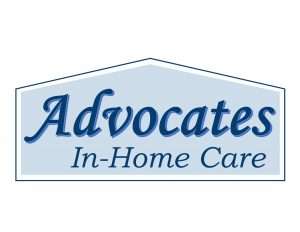Sadly, too many of our elders find themselves victims of some form of elder abuse. Whether the abuse is physical, emotional or financial, some elder abuse protection is possible with a few simple steps.
Stay connected! Keep in touch regularly with others; isolation can make you vulnerable to abuse. Build a network of family, friends, neighbors, and groups to interact with. Creating a buddy system with other elders who call or visit each other daily will provide additional eyes and ears to keep you safe.
Keep active, stay busy. Get involved with your senior center or other groups. Contact your local Area Agency on Aging office to identify programs and support, such as Meals on Wheels. These programs help elders to maintain health, well-being, and independence — a good defense against abuse.
Be cautious! Some scams target seniors and will take advantage of them. To protect yourself, learn about the types of elder abuse and neglect and their warning signs (see our previous blog or go to the National Center on Elder Abuse website to learn more.
Get on the National Do Not Call Registry to reduce telemarketing calls. Visit www.donotcall.gov or call 888-382-1222 to register your phone number.
A prize, loan or investment that sounds too good to be true, probably is too good to be true. Ask someone you trust before making a large purchase or investment. Don’t be pressured into making immediate decisions. Don’t sign anything you don’t completely understand without first consulting an attorney or trusted family member.
Do not provide personal information such as a social security or credit card number over the phone unless you placed the call and know with whom you are speaking. Tear up or shred credit card receipts, bank statements, and financial records before disposing of them.
If you hire someone for in home care services, make sure they have been properly screened with criminal background checks. When you partner with a home care agency, the caregiver will have been checked out by the agency. Your caregiver is someone who will be able to spot signs of abuse or personal neglect. They will see if bills start piling up or personal hygiene begins to slip. They will note visitors being disrespectful, see visible signs of physical abuse, and be aware of emotional distress. Having a trusted caregiver in the home can provide peace of mind for far away family members.
Plan ahead! Have your income directly deposited into your checking account. Contact your bank for help on setting that up.
If managing your daily finances becomes difficult, consider hiring a daily money manager. Only allow someone you trust to manage your finances. Visit www.aadmm.com for further information on professional money management services.
Name a person you trust to make healthcare and money management decisions for you when you are incapable. If possible, name more than one person as power of attorney so that no one can act alone.
Complete protection from elder abuse for oneself or a loved one may not be possible. But you can do a lot to reduce the likelihood of abuse. And knowing what to look for will help you to spot it, report it and stop it if it does occur.


Recent Comments